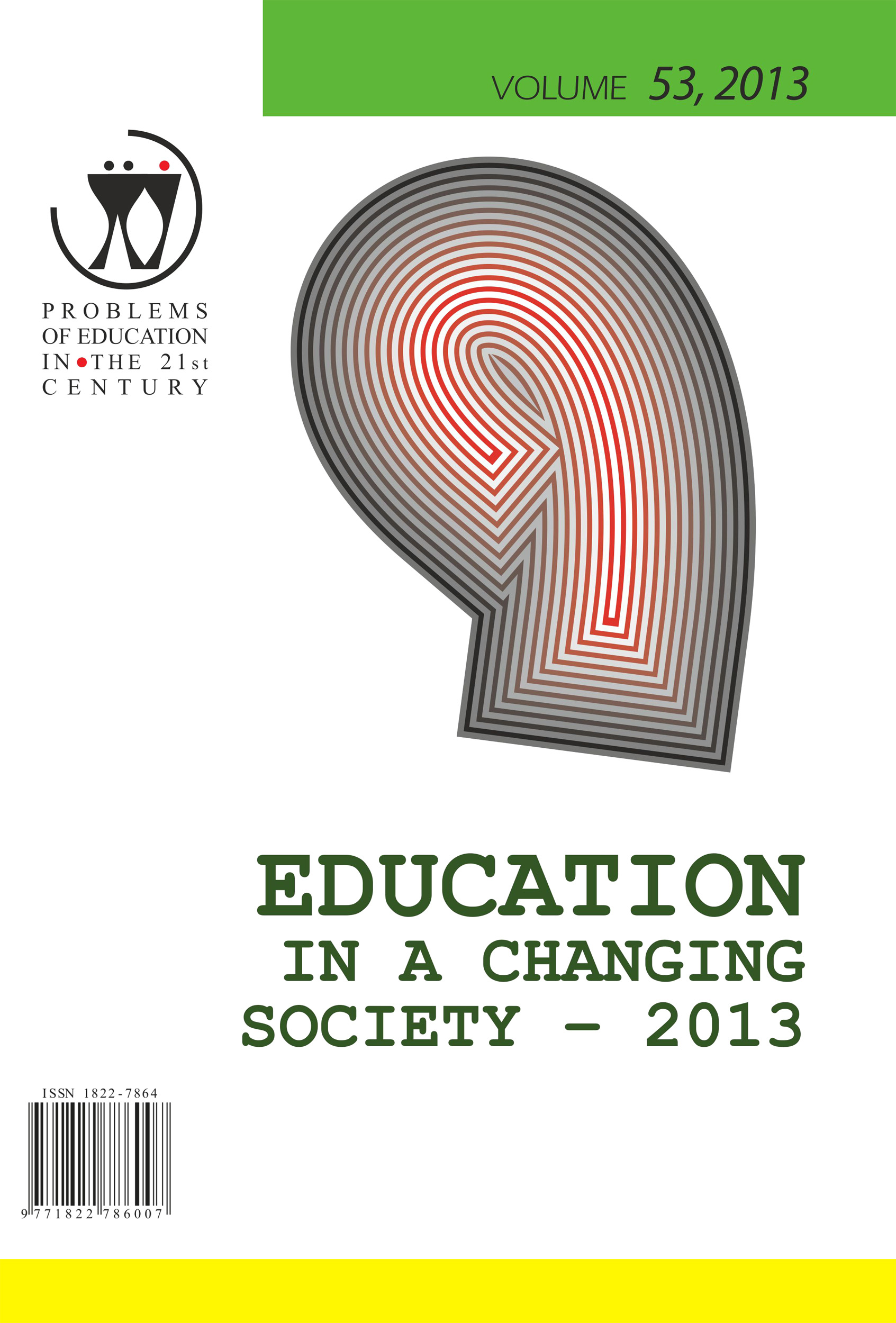USING CHEMICAL MODELS FOR DEVELOPING NATURAL SCIENCE COMPETENCES IN TEACHING CHEMISTRY: FROM PUPILS AS MODEL ASSEMBLERS TO PUPILS AS CREATORS OF SELF-MADE MODELS
USING CHEMICAL MODELS FOR DEVELOPING NATURAL SCIENCE COMPETENCES IN TEACHING CHEMISTRY: FROM PUPILS AS MODEL ASSEMBLERS TO PUPILS AS CREATORS OF SELF-MADE MODELS
Author(s): Darinka Sikošek, Mateja ŽuželjSubject(s): Education, School education, Pedagogy
Published by: Scientia Socialis, UAB
Keywords: chemical models; competencies; self-made models; teaching and learning by models;
Summary/Abstract: Chemical models are indispensable tool in chemistry class and enable secondary school pupils to develop complex thought processes and spatial concepts, both of which are necessary to improve their understanding of chemical concepts.In this research, special emphasis is given to complex competencies not only their acquisition, but rather how pupils develop them. For this purpose, a learning strategy has been developed, called learning by self-generating chemical models. Pupils learn individually on their own models, which are made from easily accessible, low-cost materials.The impact of workable models was investigated (assembly of commercial models and production of self-made models) on the (1) learning success using simple molecule shapes and (2) the degree of competence development which realized through the implemented activities. The study involved first-year secondary school-pupils, defined as self-creators of paper- and -wire models (experimental group) and assemblers of commercial models (called the control group). The appearance of the molecules being studied took the form of geometric shapes and structures, which pupils present by making of ball-, called wire-models from plasticine and wire or paper created, called paper models.Based on the results of statistical processing of the data, we found that self-creation of models (as an innovative approach) leads to better understanding and to subsequently sustained knowledge for the pupil. It should also be noted that pupils who were self-generators in comparisons to those who merely assembled the models, generally developed many complex skills in the areas of problem solving, practical competence, mathematical competence and critical thinking skills. The knowledge so acquired was also better understood.
Journal: Problems of Education in the 21st Century
- Issue Year: 53/2013
- Issue No: 1
- Page Range: 89-98
- Page Count: 10
- Language: English

